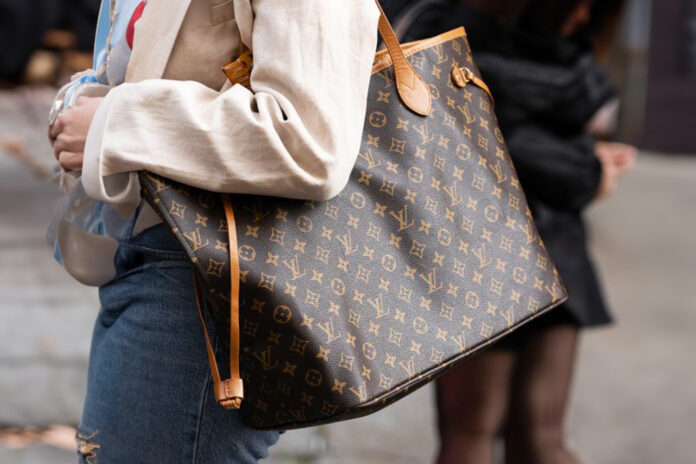Did Louis Vuitton Copy Goyard? The Shocking Truth About the Neverfull.
The Luxury Copycat: Did Louis Vuitton’s Iconic Neverfull Borrow Too Heavily from Goyard’s Saint Louis Bag?
For decades, the world of luxury fashion has thrived on innovation, craftsmanship, and, of course, exclusivity. But what happens when one of the biggest names in luxury is accused of borrowing—or outright copying—from another? Louis Vuitton’s @louisvuitton Neverfull bag, one of the brand’s most recognizable designs, has long been suspected of being heavily inspired by the Saint Louis bag by Maison Goyard @goyardofficial. Let’s delve into the origins of these iconic bags, explore the striking similarities, and discuss what this means for loyal luxury consumers.
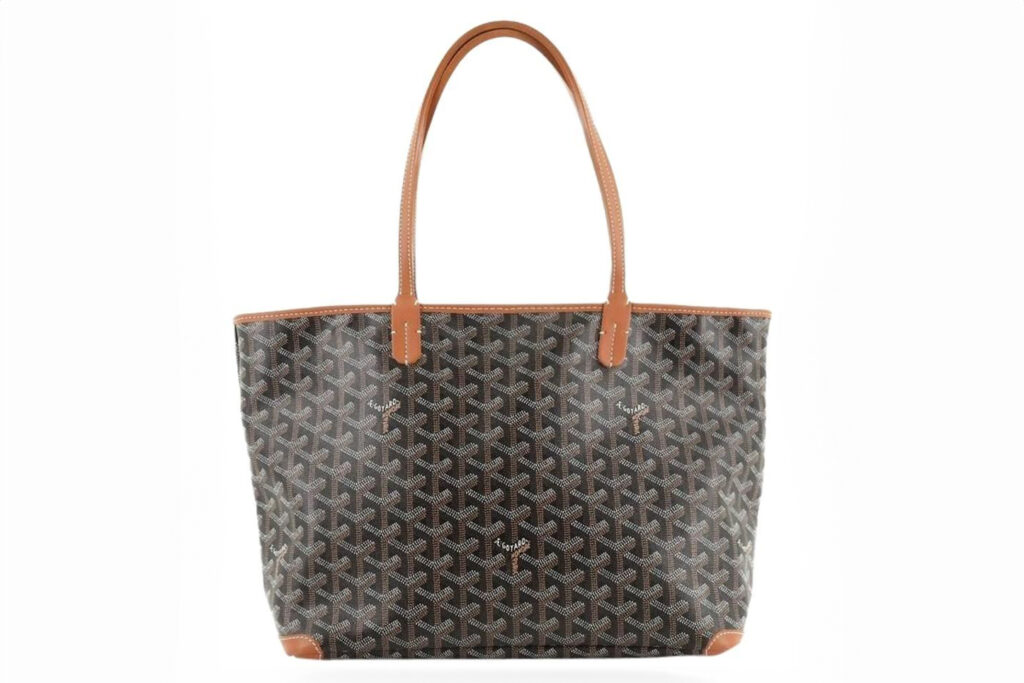
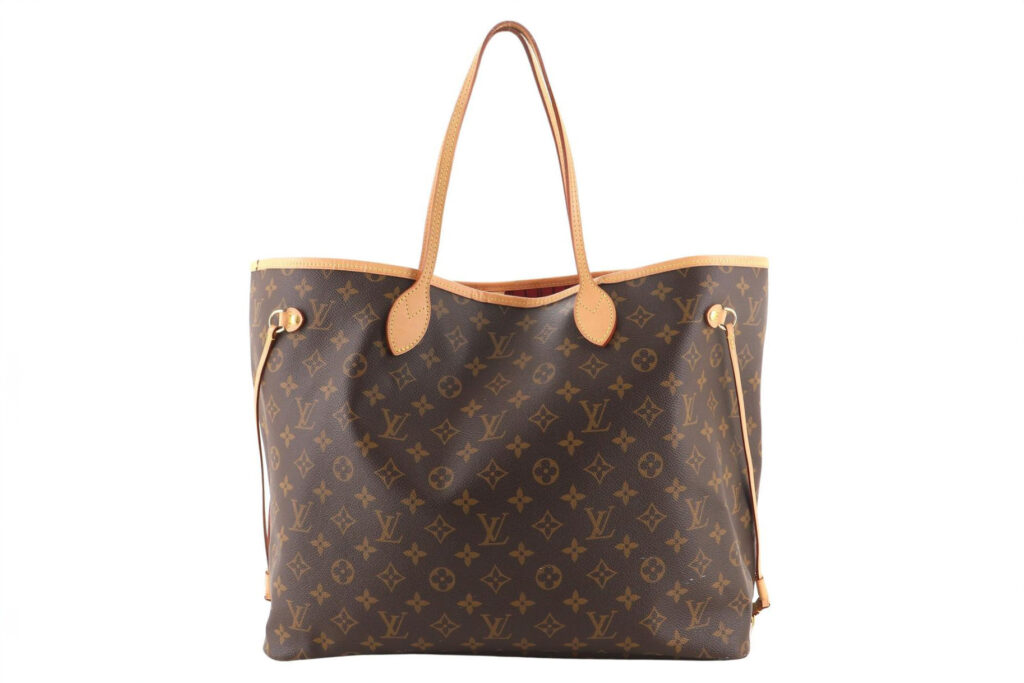
The Origins: Goyard’s Saint Louis vs. Louis Vuitton’s Neverfull
Maison Goyard, founded in 1853, is one of the oldest and most discreet luxury trunk-makers in the world. The Saint Louis tote was introduced in 1930 as a lightweight, reversible carryall, crafted from Goyard’s signature Chevron-patterned canvas and trimmed with supple leather. It was a practical yet elegant bag designed for both utility and sophistication, making it a favorite among discerning clients.
Louis Vuitton, a name synonymous with luxury, was founded in 1854, just one year after Goyard. However, the brand didn’t debut its Neverfull tote until 2007, a staggering 77 years after Goyard’s Saint Louis entered the market. Designed by Louis Vuitton’s then-creative director, Marc Jacobs, the Neverfull was launched as a stylish, functional tote for modern women. Available in the iconic Monogram canvas, Damier Ebene, and Damier Azur, the bag quickly became a status symbol.
But here’s the twist: the Neverfull’s size, shape, and purpose bear an uncanny resemblance to Goyard’s Saint Louis. Both are large, unstructured totes with thin leather straps, making them virtually interchangeable in appearance. Coincidence? Perhaps not.
The Monogram Conundrum: Was Louis Vuitton Inspired by Goyard’s Canvas?
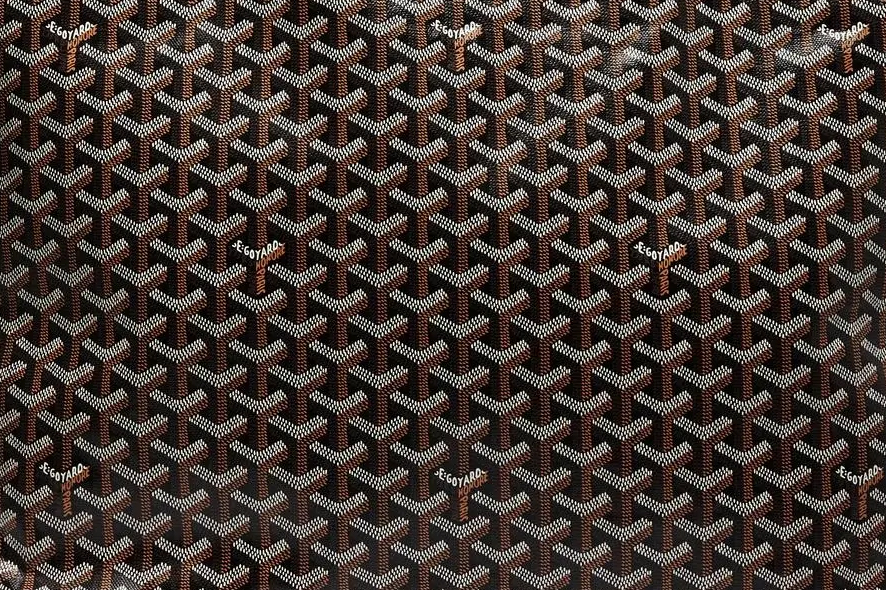
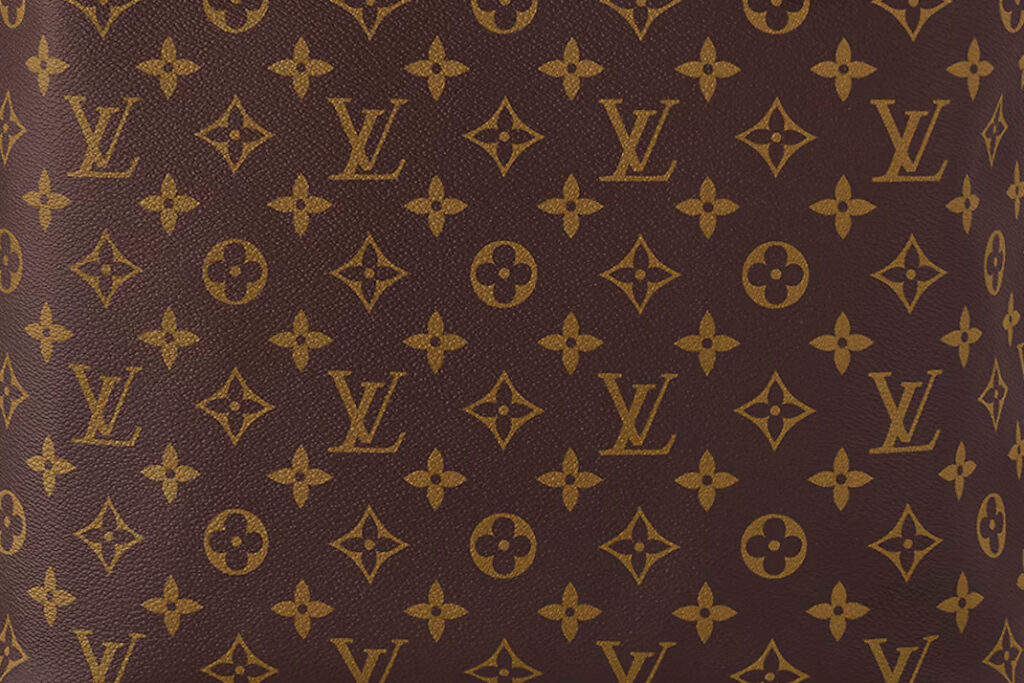
Goyard’s iconic Chevron canvas, which features a repeating “Y” pattern symbolizing the brand’s name, has been in existence since the 19th century. This hand-painted canvas was revolutionary at the time and became a hallmark of the brand’s exclusivity.
Louis Vuitton’s Monogram canvas, introduced in 1896 by Georges Vuitton, came after Goyard’s pattern. While Vuitton’s design features floral motifs and interlocking LVs, the concept of a branded, recognizable canvas may well have been influenced by Goyard’s earlier work. The resemblance is striking enough to prompt some critics to wonder whether the Monogram canvas owes its existence to Goyard’s pioneering efforts.
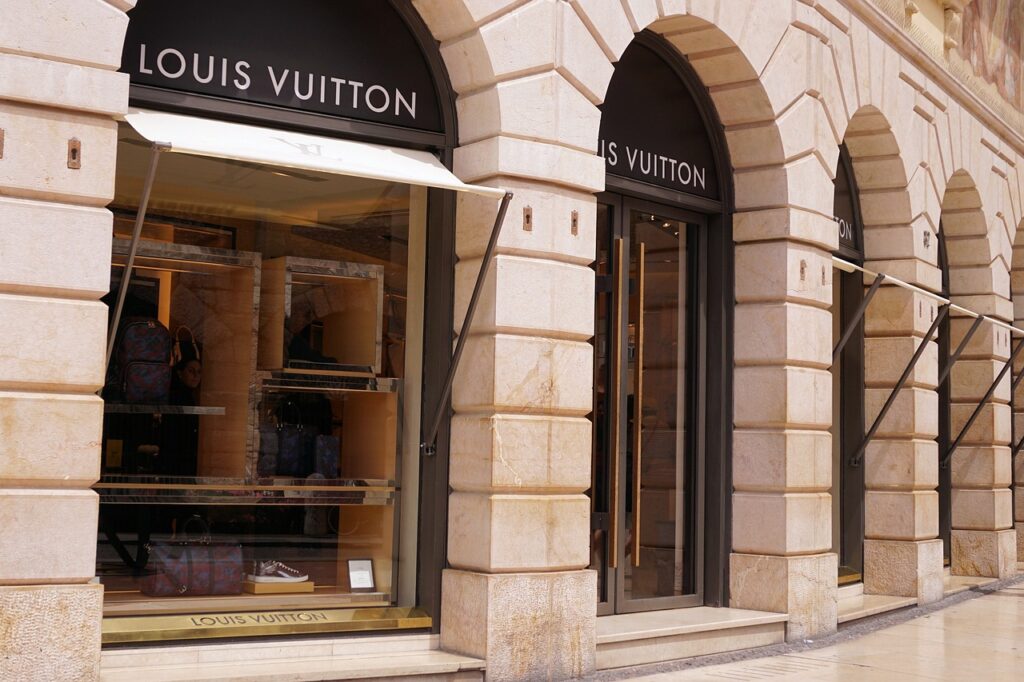
Suspicious Similarities: The Neverfull vs. The Saint Louis
Let’s compare the two bags:
1. Design and Shape: Both are lightweight, unstructured totes with thin leather straps and minimal hardware. The simplicity of their designs makes them eerily similar, with only slight differences in detailing.
2. Sizes: Both bags come in comparable sizes—PM, MM, and GM for Louis Vuitton and Junior, PM, and GM for Goyard.
3. Price Point: The Louis Vuitton Neverfull retails for around $2,000, depending on the size and material, while the Goyard Saint Louis starts at approximately $1,800. Interestingly, Goyard’s prices remain elusive as the brand avoids e-commerce and keeps a low profile, adding to its mystique.
4. Materials: Goyard’s canvas is hand-painted and boasts a level of craftsmanship that many argue surpasses Louis Vuitton’s machine-printed Monogram canvas. Despite this, Louis Vuitton’s marketing prowess has elevated the Neverfull to global fame, overshadowing the Saint Louis in mainstream recognition.
The similarities between these two bags are more than a coincidence. Whether intentional or not, Louis Vuitton’s Neverfull appears to have drawn significant inspiration from Goyard’s Saint Louis.

The Bigger Picture: Marketing vs. Quality
Luxury brands like Louis Vuitton and Dior have mastered the art of marketing, creating an aura of exclusivity and desirability around their products. However, this strategy often masks the fact that consumers are paying a premium for the brand name rather than superior quality or originality.
It’s time for fans of luxury fashion to reflect. Are we being seduced by clever marketing into overpaying for products that may lack the uniqueness and quality we expect? When a bag like the Neverfull, which costs over $2,000, might be little more than a reinterpretation of Goyard’s Saint Louis, it’s worth asking: are we buying luxury or just a logo?
Conclusion
The luxury world thrives on exclusivity, but as consumers become more informed, the lines between authenticity and imitation blur. Louis Vuitton’s Neverfull may be an iconic piece, but its striking resemblance to Goyard’s Saint Louis raises uncomfortable questions about originality in high fashion. Before you splurge on your next luxury bag, take a moment to think: are you paying for innovation, or just clever branding?
What Louis Vuitton Doesn’t Want You to Know About the Neverfull Bag
Credit 📷: Instagram

